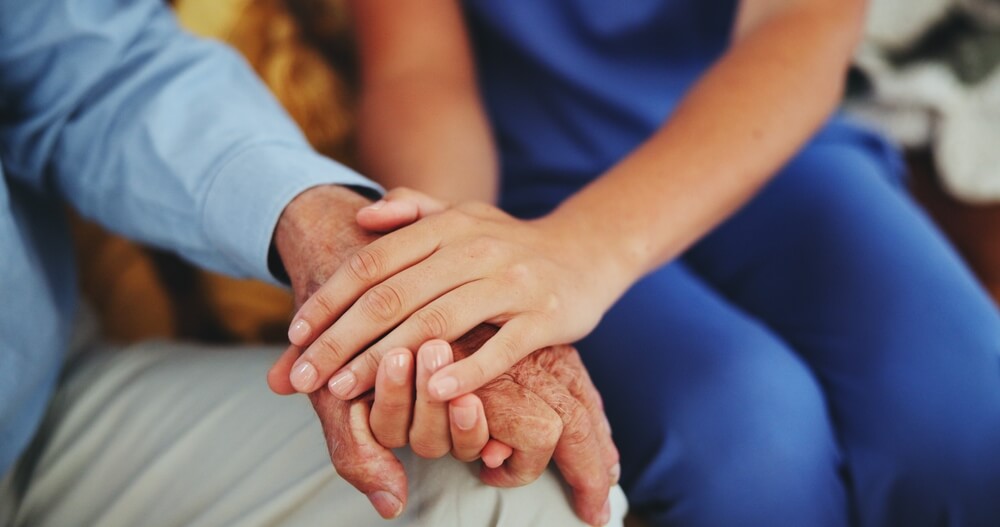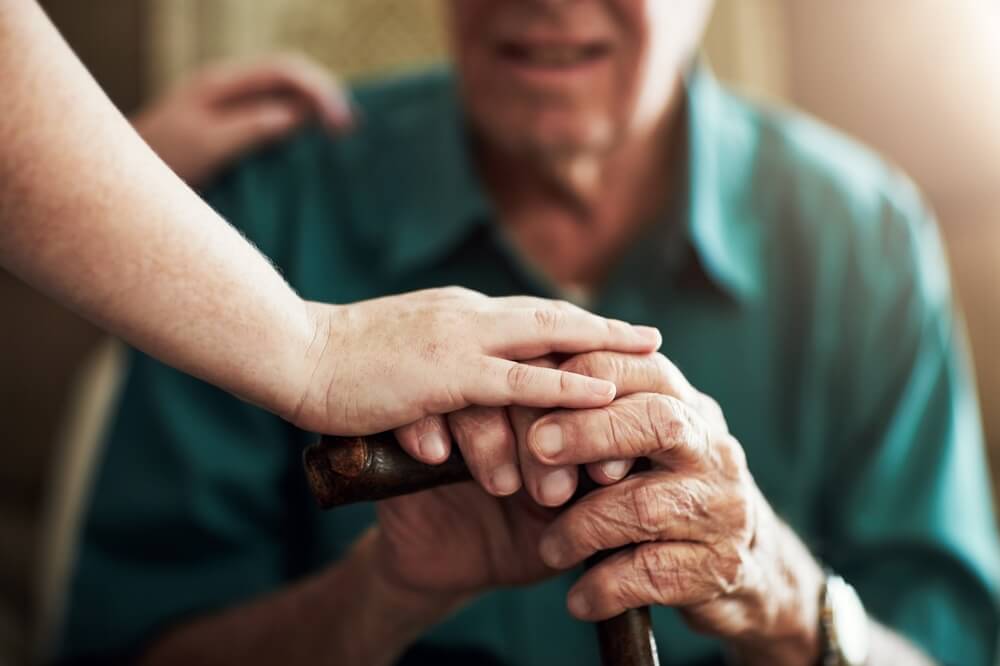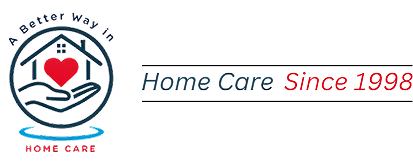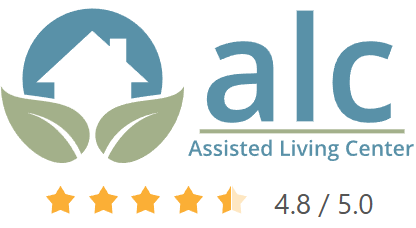As our family members age, they may face more complex health and daily living challenges. It’s important to recognize when you can’t handle their increasingly complex needs. Often professional in-home care is the right choice for their well-being and better quality of life. Trained and experienced professionals can provide not just medical support, but also companionship and help with everyday tasks.
At the same time, this will allow you to recharge, take care of your own needs, and come back well-rested, with a full emotional capacity to cherish the time with your loved one. This is also a safe way to help them maintain a sense of independence and empowerment and ensure they continue to live safely and happily.

Therefore, when your aging relative in Los Angeles is in need of professional assistance, you need to have a clear and comprehensive plan. This is necessary for a number of reasons, which involve preserving the sense of autonomy in the elderly, their well-being, and their active social role. This can be achieved when following professional caregiver guidelines.
When thinking about how to plan for your elderly parents’ care, keep in mind that you only have to focus on a few practical aspects: finding the right help and arranging and paying for everything. Here professional caregivers have an important role, since the rest is in their hands, although they will certainly not make any decisions without consulting you first.
It’s the professionals who will come up with ideas for your aging loved one’s day-to-day routine, and your aging loved one and yourself get to adjust those ideas to their specific needs and preferences. As you learn more about this, you’ll be better equipped to bring your aging parent the quality of life they deserve.
What is a care plan for the elderly?
A care plan for the elderly is essentially a customized blueprint created by experienced caregivers. It’s supposed to be a very thorough document that spells out everything needed to ensure your loved one’s health and happiness. This plan includes a detailed schedule of their daily activities, important medical information like medication schedules and healthcare appointments, dietary preferences, and any specific personal care routines they require.
The plan also outlines how to handle emergencies, providing contact information for doctors, family members, or other emergency contacts. With a document as structured as this, home caregivers can offer consistent and attentive care more easily. Naturally, they will adjust the plan as your aging loved one’s needs evolve over time.
To do this well, the caregiver has to have an in-depth discussion with you or other family members to understand all the details of your aging loved one’s lifestyle, health issues, and personal preferences. They use this information to come up with a comprehensive plan that meets the day-to-day needs and enriches the senior’s life.
If they have no serious cognitive impairments, dementia, or other issues that might prevent them from participating, their voice needs to be heard too. The idea is to make their quality of life better and this can be executed much better if you have their input too. It’s a show of trust and respect that you hold for them and it’s more important than you may think, especially if they have some initial resistance to care.
What is the main purpose of a care plan?
The main purpose of a care plan for your aging loved one is to make sure that caregiving is as organized as possible and that it works out in their best interest. Everyone in your aging loved one’s life, from family members and friends to professional caregivers, should have a clear idea of what they can do to support them.

It’s all about teamwork. A clear care plan keeps everyone on the same page. When different people are helping out, it’s easy to mix schedules and details up, and this can have serious consequences in certain contexts. For example, if you take care of your aging loved one on Sunday and rely on professionals during the other days, you could forget that they have a doctor’s appointment scheduled if you’re not coordinated with the caregiver. There’s simply no room for messy, unclear schedules when it comes to taking care of seniors. Honest, seemingly small mistakes can have serious consequences. This is why knowing how to make a care plan for the elderly can help you make sure nothing falls through the cracks. There are other benefits and purposes of having a clear, structured schedule, but this is the main point and it will help you prevent a lot of potential issues and complications.
Why is a care plan for the elderly important?
Writing a detailed care plan for your elderly relative can take some time but it will be well worth it. Beyond keeping schedules clear and preventing logistical mishaps, it has a number of advantages for you and the elderly:
- you’ll be better prepared when making decisions regarding your loved one’s needs
- you’ll have everything at hand to answer questions from medical staff, other professionals, and family members
Let’s take a deeper look into exactly why a care plan is so important for the elderly:
1. Complete health and wellness management
A comprehensive plan has to include everything from medication schedules to exercise routines and mental health checks. Every aspect of your aging loved one’s health has to be monitored and managed, so nothing gets missed. While health comes first, it’s equally important to keep them happy, involved, and emotionally supported, and a good plan accounts for all of this.
2. Quick adaptation to health changes
Life with aging adults can be unpredictable since they often struggle with health issues and there are various potential threats to their safety. A solid care plan allows caregivers to quickly react if your loved one’s health situation changes, or even anticipate that something’s starting to go wrong because they have a detailed insight into your loved one’s conditions. This responsiveness is one of the most important parts of in-home care, and it can be negatively affected if some information is overlooked or miscommunicated.
4. Essential documentation for doctors
When it’s time for a medical check-up or a new treatment decision, having a detailed care plan is invaluable. It gives doctors a full picture of what’s been happening, which can significantly help them make informed decisions that are in your aging loved one’s best interest.
5. Assuring quality and compliance
Another consideration when thinking about how to create a care plan for the elderly is the accountability that it provides. Essentially, it’s a very good way to keep the caregiver accountable and make sure they adhere to the agreed standard. When the plan is on paper, you have something to refer to if the quality of care doesn’t meet expectations. While it’s not a contract, it still holds weight. The professional you rely on should deliver everything promised in the plan to make sure your loved one receives the expected level of care.tc.
Who creates an elderly patient’s plan of care?
When you set out to make an elderly care plan, it’s best to make it a team effort. Typically, it will involve the family members and the caregiver, with input from your aging loved one and their doctor’s instructions. The process is led by a primary caretaker, often a family member or a professional in-home caregiver, who truly knows every detail of the patient’s daily needs and personal preferences, especially if they need 24/7 care.
Naturally, healthcare professionals such as doctors, nurses, and specialists have to contribute their medical expertise to ensure that the plan addresses any underlying health conditions and includes appropriate medical treatments. These professionals may also help set realistic health goals based on the patient’s current condition and prognosis.Depending on the situation, as the professional caregiver comes up with a plan, they might need some additional input from a therapist, dietitian, or pharmacist. If your aging loved one has some specific needs regarding physical mobility, nutritional requirements, and medication management, this could be very helpful. For example, if they refuse to eat, a dietitian may help with some ideas on how to make their meals more nutritious and appealing.
How to create a comprehensive care plan for the elderly?
When creating a care plan for elderly loved ones in a non-medical context, there are several key points to If you find yourself needing to create a care plan on your own, perhaps while you’re still searching for the right professional caregiver, you have to approach this task thoroughly and carefully. Creating some structure by yourself can be challenging, but it’s necessary until professional help can be arranged. So, how do you write a care plan for the elderly that can help you until you get professional help?
1. Goals and objectives
Establishing clear goals and objectives is essential. What do you hope to accomplish with the care plan? Are there specific tasks or activities that need to be carried out on a daily basis? What medical conditions require treatment and monitoring? Defining your goals will help you create a more effective plan. You should set achievable and measurable goals that can improve your loved one’s quality of life and health. Make sure these objectives are clear to anyone who might help you, even temporarily.
2. Considering limits and strengths
Caregivers should have a good understanding of their elderly loved one’s physical capabilities and limitations. This includes knowing how much assistance is needed for activities such as bathing, dressing, and grooming. It’s also important to be aware of any potential health risks, such as falls or medication interactions. Take a look at these elements through a realistic lens, considering what your loved one can do independently and where they need support. This will help you adjust your daily caregiving activities and avoid pushing their limits too hard.
3. Tailored plan
When you do an elderly care plan, it needs to be tailored to the individual, taking into account their unique personality, preferences, and lifestyle. For example, some elderly people prefer to live independently as long as possible, while others may need more assistance and supervision. Make sure to take their personal preferences into account. For example, you can consider their pets when making the plan. You should also consider incorporating their hobbies, social preferences, and even small comforts that can make a big difference in their daily happiness. This can significantly help keep your loved one feeling empowered and happy.
4. Daily activities
The care plan should include a schedule of daily activities and tasks that need to be completed. This will help ensure that all important duties are taken care of on a regular basis. This should include a list of essential activities, as well as means to socialize and enrich their everyday life. For example, it can include playing board games with family members or friends. You can also include more activities that bring joy, such as gardening, reading, or short walks, depending on their ability.
5. Track changes
Caregivers should keep track of any changes in the elderly loved one’s condition or routine so that they can make necessary adjustments to the plan as needed. This includes watching for signs of illness or cognitive decline and updating the setting regularly. You should be in close contact with their doctor, to make sure that they are following up as well. You can establish a simple yet effective system for recording these changes, perhaps through a dedicated notebook or a digital app where you can keep track of your tasks.
6. Communication is key
The care plan should be shared with all involved parties, including family members, healthcare providers, and any other caregivers. This will help ensure that everyone is on the same page and can work together to provide the best possible care for elderly loved ones. Effective communication ensures that even when you’re not there, others can provide care that aligns with your established plan. You can use tools like shared online documents or detailed care logs to keep everyone informed.
7. Regular updates
Finally, it’s important to review and update the plan regularly, as conditions may change over time. The goal is to create a document that is reflective of current needs and provides the most effective level of care possible.Thinking about how to do a care plan for the elderly on your own can seem challenging at first, but following these seven steps will help get you started on the right foot. With careful planning and teamwork, your seniors will enjoy a safe, healthy, and rewarding life.
Where in Los Angeles can I book reliable homecare for my elderly relative?
When you need to hire someone who has the experience, positive track record, and a client-focused attitude to cater to the needs of your aging family member, you don’t want to take shortcuts. Fortunately, for residents of Los Angeles, it’s not so difficult!

Here at A Better Way in Home Care, we can connect you with experienced caregivers who can assist your aging loved one in a number of ways. They can handle everything from everyday household tasks, personal hygiene, and grooming, to taking your loved one to see their doctor. The main benefit of relying on an agency like ours is the fact that we carefully background-check every single professional we work with.
They know that a great care plan is important for the elderly and will do their best to create one that’s right for your loved one. You can rest assured that your elderly relative will be in the hands of a truly dedicated caregiver. If you need dependable and safe in-home care in Beverly Hills or elsewhere in the vicinity, you can count on us. Experience a peace of mind and enhanced quality of life. Give us a call today, and we’ll make sure to find a perfect match!








